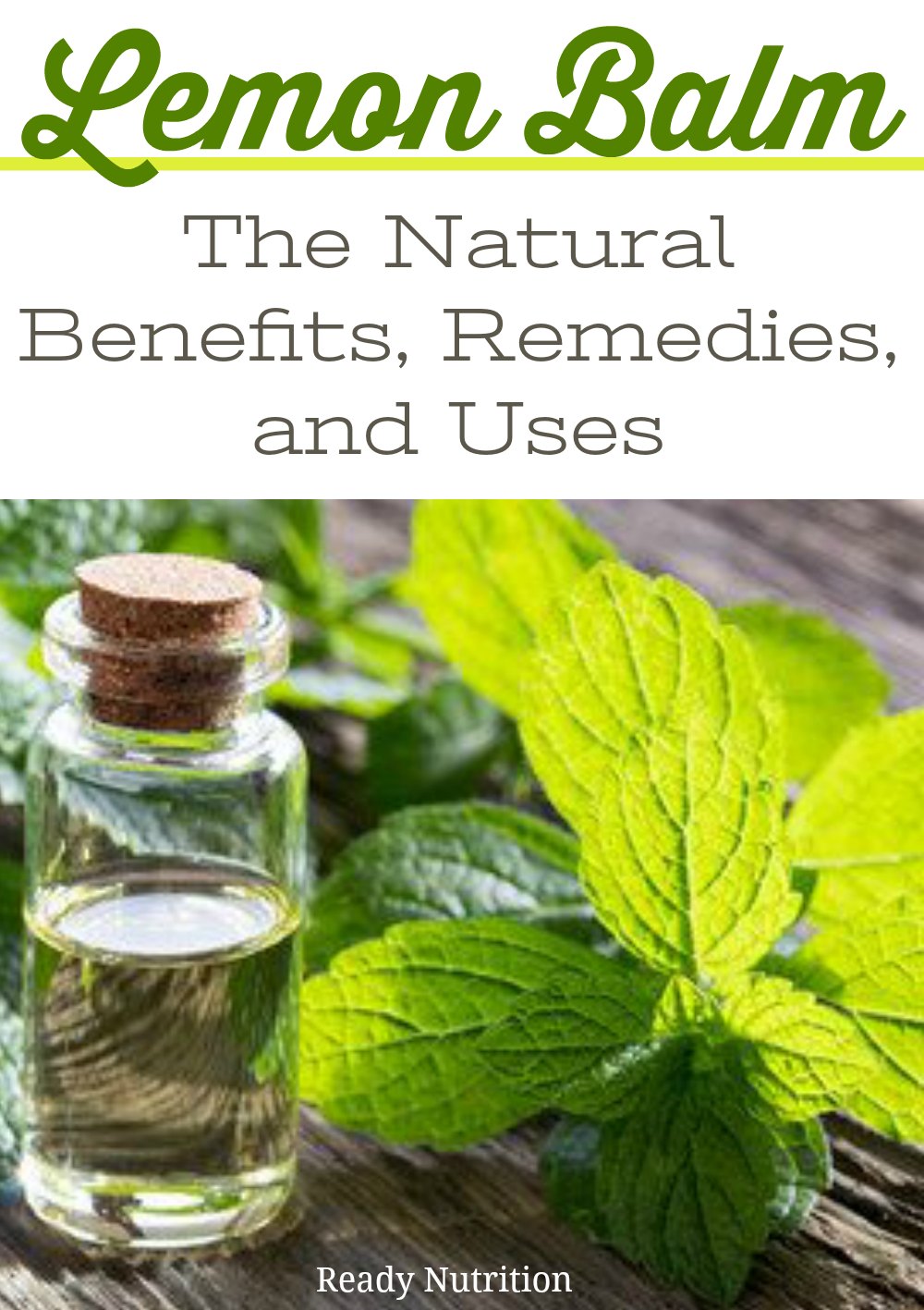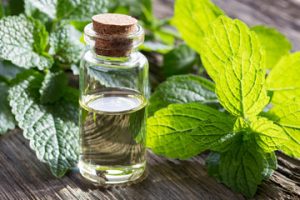Lemon balm or Melissa officinalis is a popular herb in the mint family. It is often used in holistic medicines, herbal teas, and grown by those who take a more natural approach to their health and well being.
While just the scent of lemon balm alone is a wonderful aromatic journey for our olfactory sense, the health benefits are the icing on the proverbial cake. Speaking of cake, lemon balm is often used in cooking and herbal tea recipes. The lemon-scented herb can also be found in the form of an extract, salve, tincture, or oil. Many who use herbal medicines actually grow lemon balm in their yard. It isn’t too difficult to grow indoors either for those who live in cooler climates, like myself!
Lemon balm has several benefits that could aid the body. Although the herb has been used as a natural remedy for quite some time now, there are some fairly recent scientific studies that have looked into its possible health benefits.
Stress, Anxiety, and Sleep Disorders
Lemon balm may be used to help reduce anxiety [1], according to a small 2014 study [2] published in Nutrients. Additionally, previous studies have suggested that a compound in lemon balm known as rosmarinic acid may have anti-anxiety effects by increasing the availability of GABA (a signaling chemical) [3] in the brain. Because of the presence of rosmarinic acid, lemon balm helps calm the mind, thereby promoting sleep and alleviating some stress. Lemon balm may have an effect on sleep when combined with the herb valerian [4].
A study published in Complementary Therapies in Clinical Practice [5] in 2013 suggests that lemon balm in combination with valerian may help improve sleep quality [5] during menopause. The researchers who conducted the study observed that the lemon balm/valerian supplement appeared to have a beneficial effect in reducing the symptoms of sleep disorders [6].
Heart Palpitations
For benign heart palpitations, some holistic and natural doctors suggest the use of lemon balm instead of pharmaceutical medications. According to Dr. Tori Hudson, [7] many of the heart palpitations are not only benign but are caused by stress or anxiety or too much caffeine. In a double-blind, placebo-controlled study, lemon balm helped reduce the episodes of heart palpitations. After only 2 weeks of treatment, lemon balm extract at 500 mg twice daily significantly decreased the frequency of episodes of benign heart palpitations and anxiety. While this was a small study of short duration, clinical results within 2 weeks are what Dr. Hudson would be looking for in a patient with heart palpitations, and anxiety.
“I look forward to using lemon balm even more, for heart palpitations that in particular seem to be associated with anxiety disorders.” –Dr. Tori Hudson, website [7]
Cold Sores
Because lemon balm has been shown to possess some antiviral properties, the herbal extract has been found to fight against the herpes simplex virus (HSV), the virus responsible for cold sores in laboratory studies. A study published in Phytotherapy Research [8]found that lemon balm extract inhibited the penetration of the herpes simplex virus type 1 (the virus that causes cold sores) into cells. Lemon balm is typically applied topically in oil, salve, cream, ointment, or lip balm form for cold sore alleviation, as opposed to drinking in a tea or used aromatically, for example.
Side Effects
 Just like with most herbal remedies/supplements and pharmaceutical options, there are some side effects that you’ll need to be aware of before you begin using lemon balm as holistic medicine. Those side effects can include headache, nausea, bloating, gas, vomiting, indigestion, dizziness, stomach pain, painful urination, anxiety, agitation, and allergic reactions. Long-term, regular, or high-dose use of lemon balm isn’t recommended as there’s some concern that discontinuing use can trigger rebound anxiety in some people. Lemon balm can also prove to be a powerful sedative, meaning it should be used before bed, as opposed to right before your drive to work. The herb may interact with supplements and medications, [2] such as sedatives, thyroid medication, chemotherapy [9] (like tamoxifen and irinotecan), warfarin [10], glaucoma medication, and drugs that affect serotonin and GABA. Lemon balm should not be used with alcohol.
Just like with most herbal remedies/supplements and pharmaceutical options, there are some side effects that you’ll need to be aware of before you begin using lemon balm as holistic medicine. Those side effects can include headache, nausea, bloating, gas, vomiting, indigestion, dizziness, stomach pain, painful urination, anxiety, agitation, and allergic reactions. Long-term, regular, or high-dose use of lemon balm isn’t recommended as there’s some concern that discontinuing use can trigger rebound anxiety in some people. Lemon balm can also prove to be a powerful sedative, meaning it should be used before bed, as opposed to right before your drive to work. The herb may interact with supplements and medications, [2] such as sedatives, thyroid medication, chemotherapy [9] (like tamoxifen and irinotecan), warfarin [10], glaucoma medication, and drugs that affect serotonin and GABA. Lemon balm should not be used with alcohol.
Lemon Balm Tea
You can make your own lemon balm tea, however, if you want something tasty and already premade for you, try Ready Nutrition’s Deepest Sleep loose tea blend [11]. For those “do-it-yourselfers” who are already growing lemon balm, try making your own tea blend.
A simple lemon balm tea recipe begins by snipping a few fresh lemon balm leaves. Rinse them well, and pat the leaves dry. Cut or tear the leaves into smaller pieces and put them into a tea infuser. Pour hot water in and infuse the leaves for about five minutes. Consider adding some mint, [12] as the flavors will compliment each other if you’d like. When brewing your lemon balm tea, make sure to keep the teapot or cup covered at all times in order to hold in the steam, which is thought to contain the herb’s therapeutic aromatic oils.
Lemon Balm Salve
If you would like to try to make a lemon balm salve, HerbaZest has an excellent and fairly easy recipe that you can follow by clicking here [13]. All you will need are a few dried lemon balm leaves, a container, beeswax, and some coconut oil or olive oil, depending on the consistency you prefer.
*This article is for informational purposes only. It is not intended to treat, cure, or diagnose any disease or ailment. Seek professional advice if necessary.

